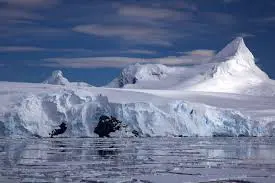A summit attended by leaders from 25 countries and aimed at conserving the Antarctic and Southern Oceans has begun in Tasmania.
The Commission for the Conservation of Antarctic Marine Living Resources (CCAMLR) is meeting this week in Hobart, Tasmania's capital, to discuss three proposed protected marine areas covering more than five million square kilometers of the Antarctic Ocean.
The 25 countries represented include China, Russia, USA, Japan, Korea and Australia.
Mike Walker, Project Director of the Antarctic Ocean Alliance (AOA), said that the campaign for designated marine protected areas (MPAs) was gaining momentum.
"The time for action to safeguard the Antarctic's waters, the engine room of the ocean, is now," Walker said in a press release on Monday.
"Commitments for almost four million square kilometers of MPAs have been made in the past weeks. This is a clear indication to all the parties participating in the meeting in Hobart that there is a growing momentum for greater ocean conservation, and Antarctic's oceans and marine life should be next."
Director of Antarctic and Southern Ocean conservation at The Pew Charitable Trusts, Andrea Kavanagh, said that Russia, which has dubbed 2017 the Year of Ecology, has led ocean conservation efforts worldwide.
"This year's global meeting could result in the largest-ever protection of the high seas, and Russia is key to reaching this goal," Kavanagh said.
"As the chair of CCAMLR, Russia is approaching this year's negotiations positively.
"At the World Conservation Congress in September, 129 countries from around the world agreed to protect 30 percent of the ocean by 2030. To meet this goal, countries will need to expand conservation action beyond their territorial waters and support protected areas on the high seas, starting with the Southern Ocean. "
Sylvia Earle, a marine biologist and oceanographer from the United States' National Oceanic and Atmospheric Administration (NOAA), said that the world was running out of time to protect its oceans.
"Fifty years ago we thought that the ocean was too big to fail. The authority to kill on a large scale in waters that belong to everyoneplaces like Antarctica's unique Southern Oceandestroys something of critical value to the way the world works. Penguins are starving. Climate change is accelerating. We know too much to continue down this path," Earle said in a media release.
"It has been clearly established that fully protecting large parts of the ocean is critical to mitigating the effects of climate change.
"CCAMLR members have an historic opportunity to designate marine protected areas in the Southern Ocean, any further delay would negatively impact the health of the Antarctic's waters and the life they support."
(APD)
 简体中文
简体中文



